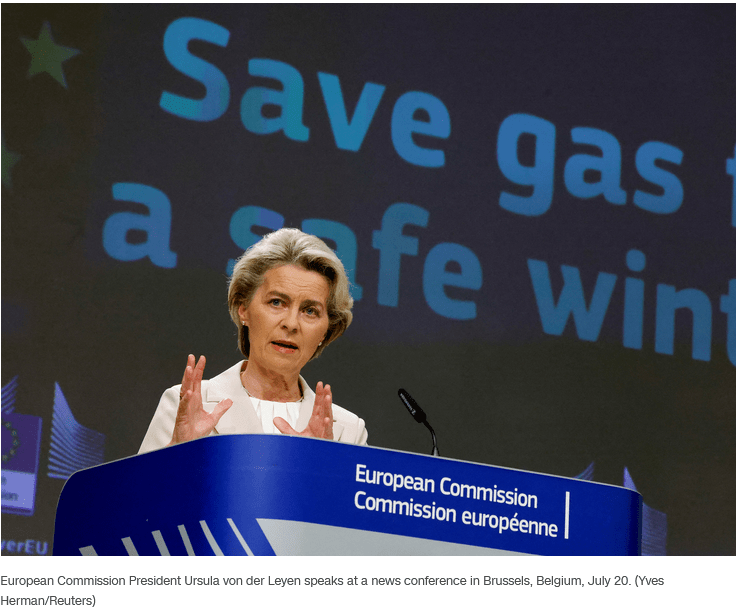The European commission on Wednesday outlined its plan to reduce gas use by 15 in Europe as it works to strengthen the region’s energy resilience in the face of growing geopolitical difficulties with Russia’s energy supplies. The commission president Ursula von der Leyen announced the construction of a Save Gas for a Safe Winter package, stating that member states had been struck by either a partial or total cut-off from Russia s gas supply.
The European Commission proposed new rules today aimed at reducing EU member states’ dependency on Russian natural gas. According to Vice President of the European Commission, Jyrki Katainen, a total shut off of Russian gas is a “likely scenario.” “Russia is blackmailing us,” he said. “Russia is using energy as a weapon.” The package proposes a target for all member states to reduce gas demand by 15% between August 2022 and March 2023. Member states have until September to show how they will be able to meet that target. In a statement on the package, the Commission said there will be measures to help EU member countries meet the necessary reductions, including a “focus on substitution of gas with other fuels, and overall energy savings in all sectors.” The Commission also urged member states to launch public awareness campaigns “to promote the reduction of heating and cooling on a broad scale.”
The Baikal-Amur Mainline Pipeline connects Russia’s natural gas reserves to the European continent via Germany. It delivers 55 billion cubic meters of gas on an annual basis, or over 40% of all gas imports from Russia.
Last month, Russian energy giant Gazprom cut flows through a pipeline that carries natural gas from Russia to Europe by 60%, blaming the West’s decision to withhold vital turbines because of sanctions against Russia over its invasion of Ukraine. Those turbines have since been allowed to travel to Germany from Canada, where they were being repaired, under a sanctions waiver issued by the Canadian government last week. But Russia could still decide to keep the taps turned off: It stopped delivering gas to several European countries and energy companies because they refused Moscow’s demands for payments in rubles—a move that would have put them in breach of European sanctions.








